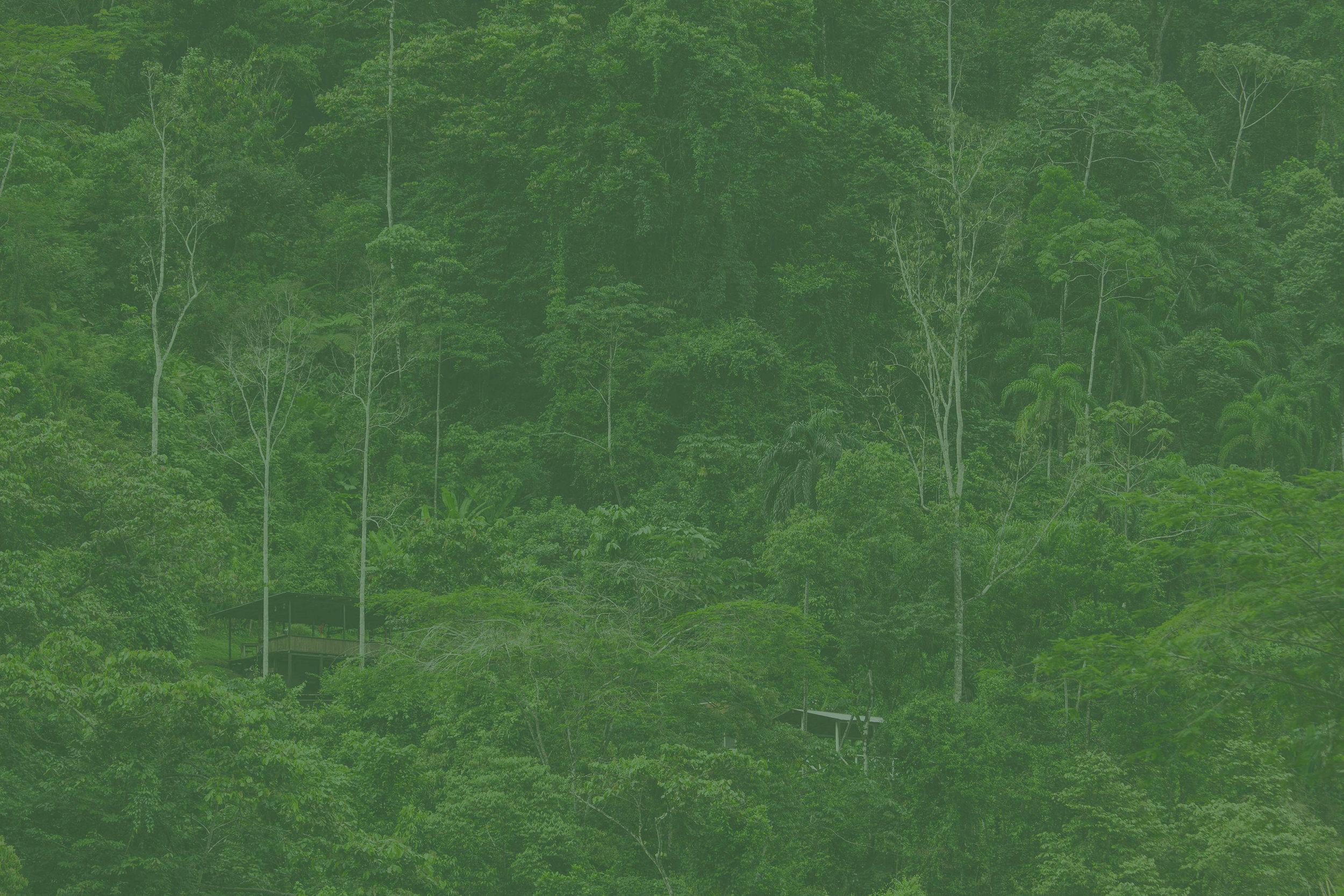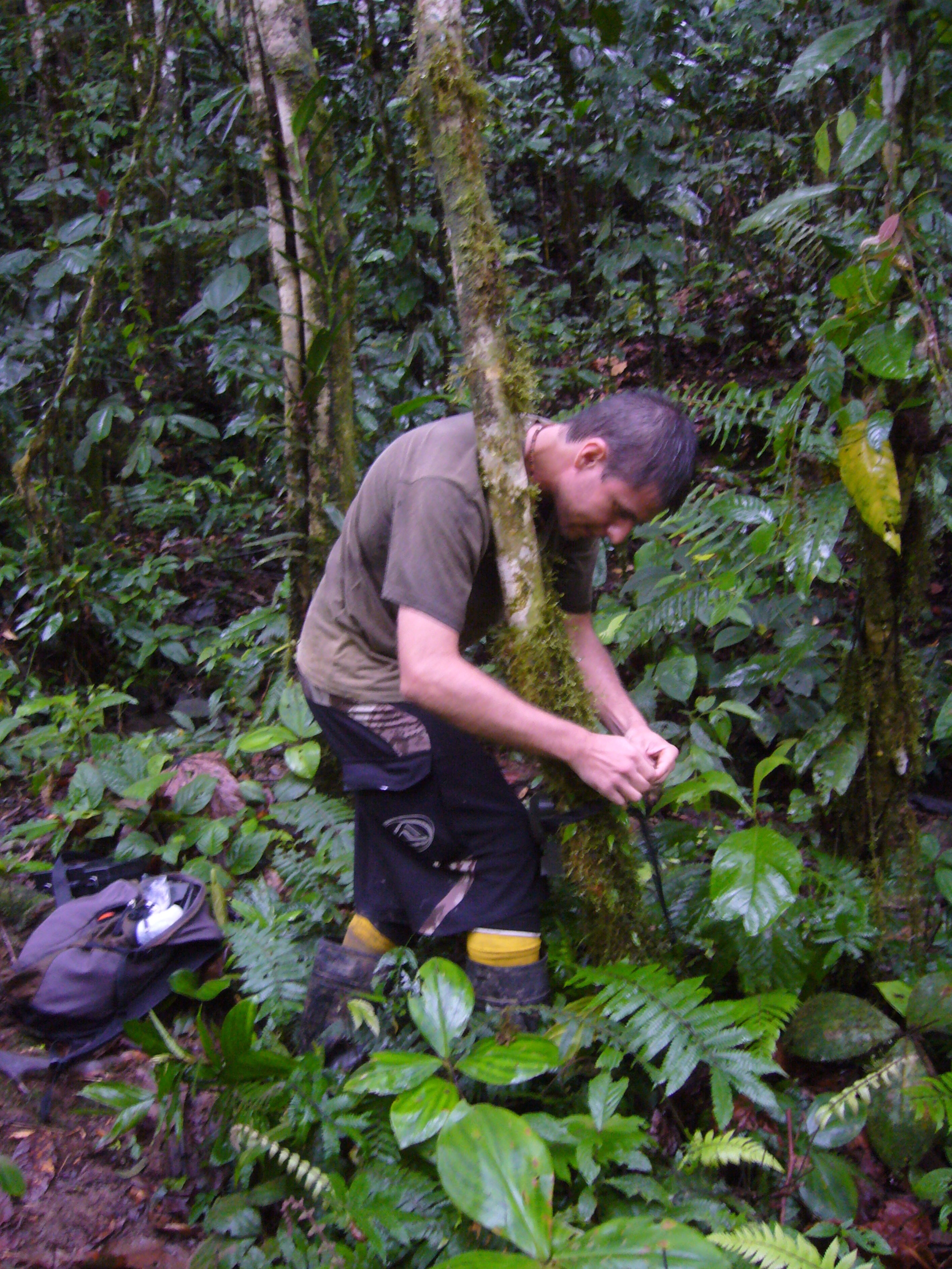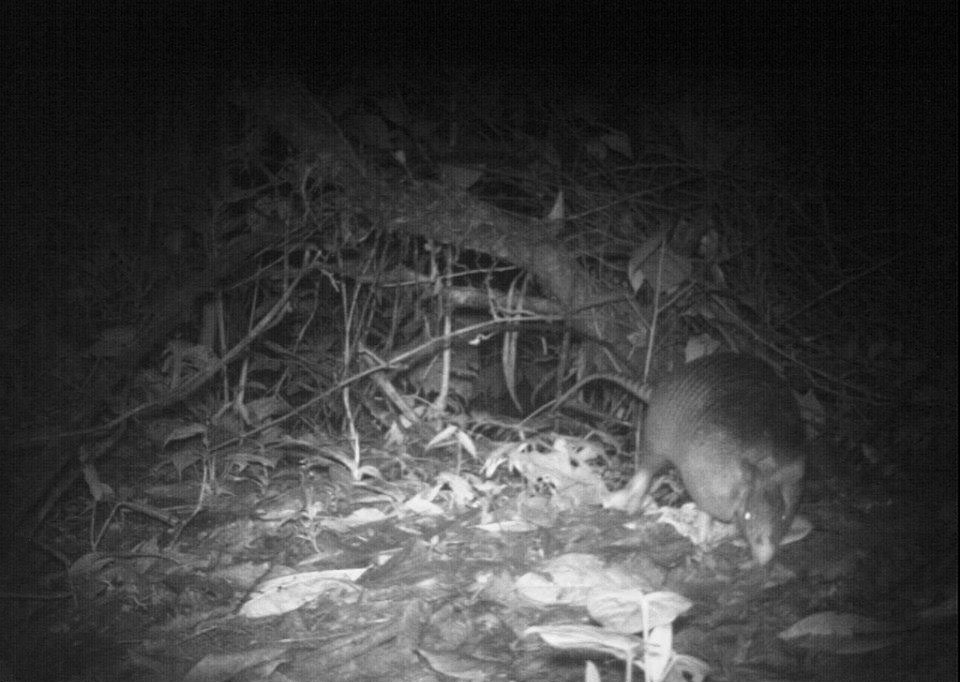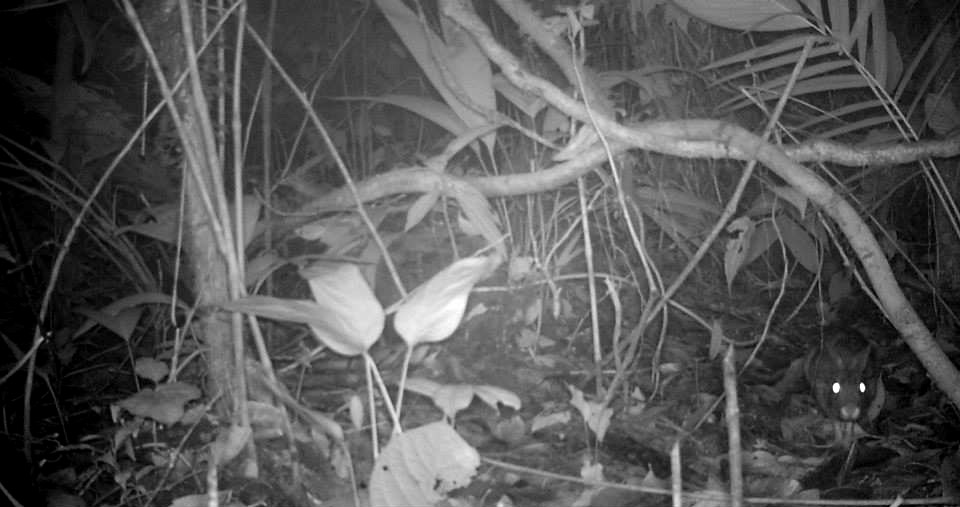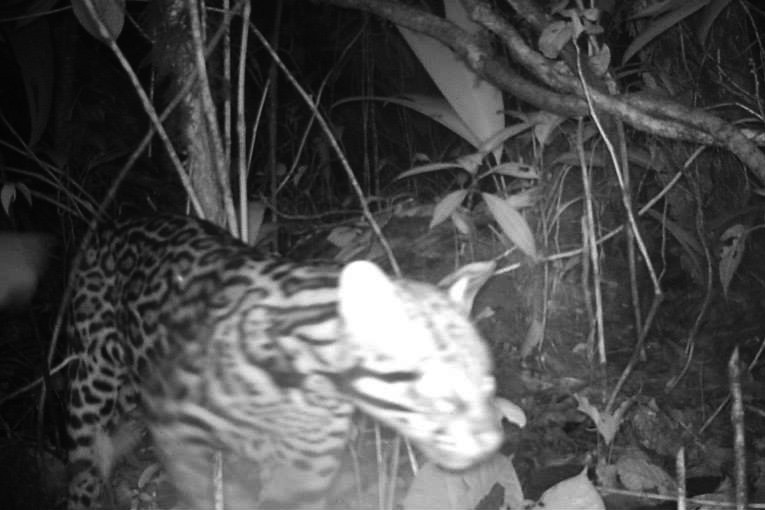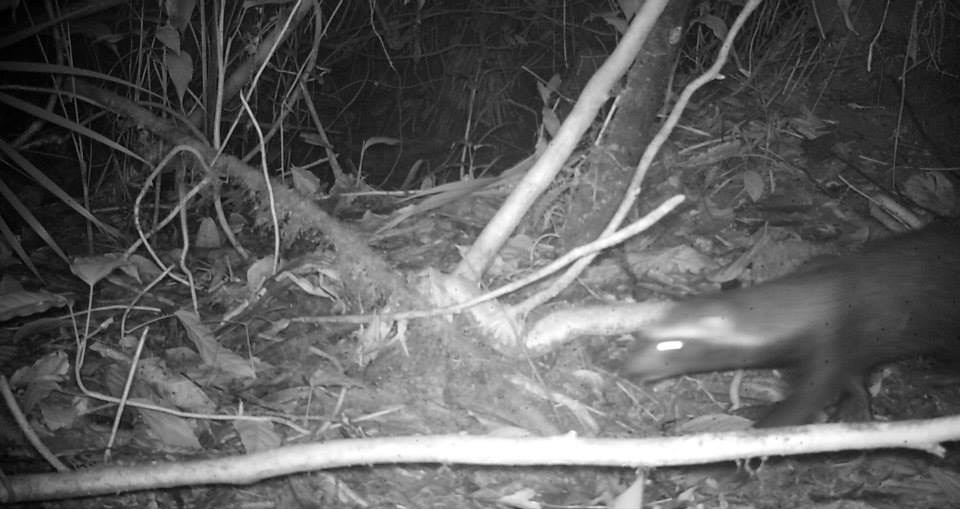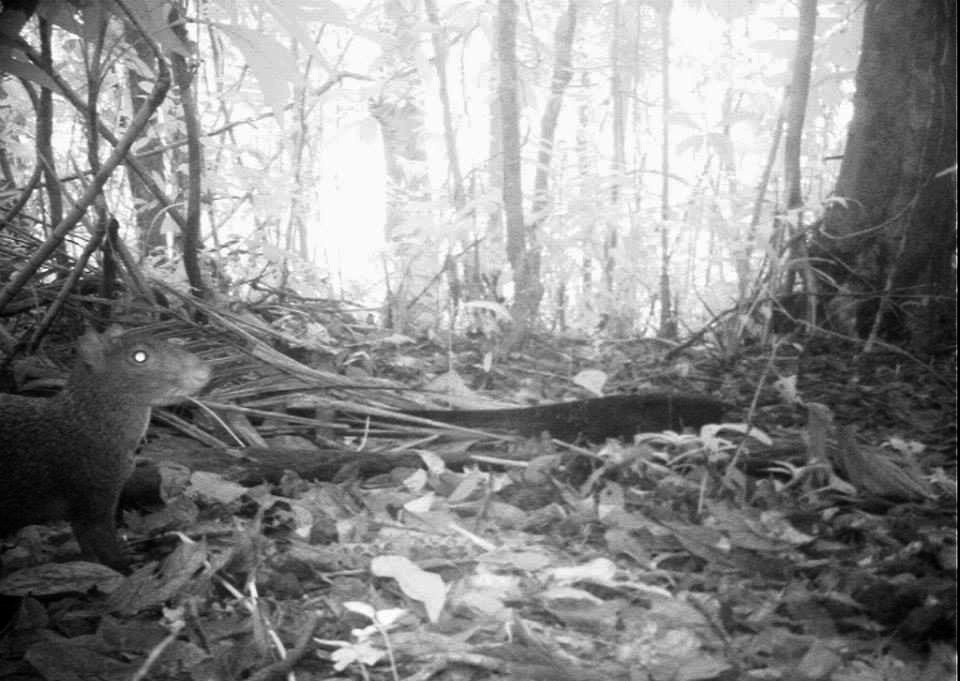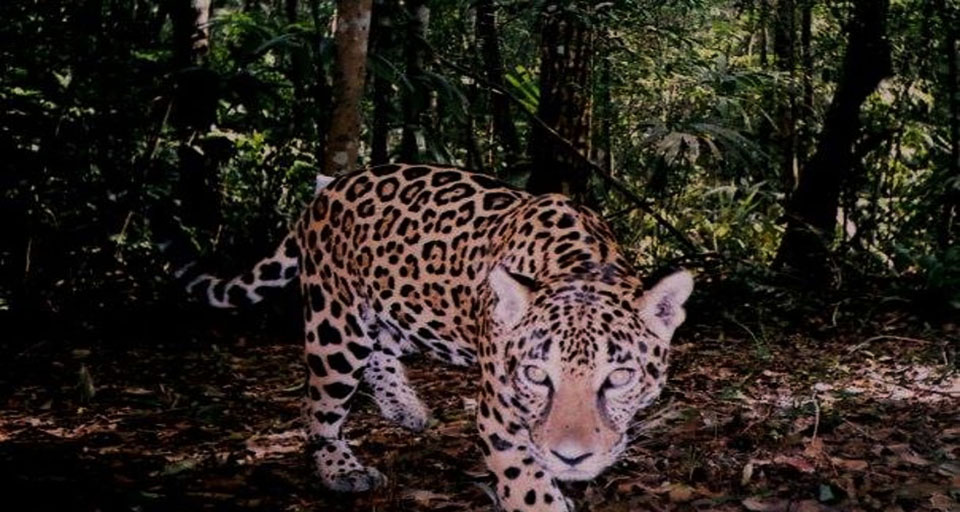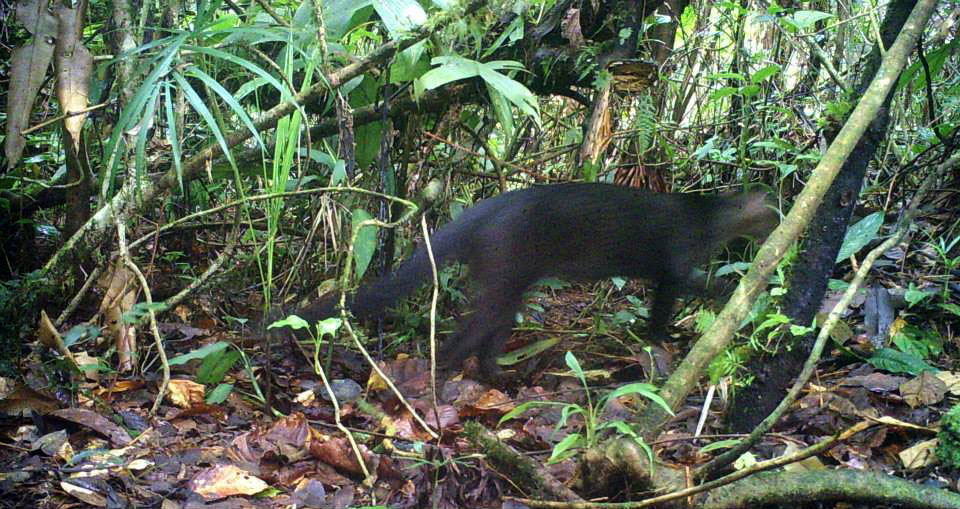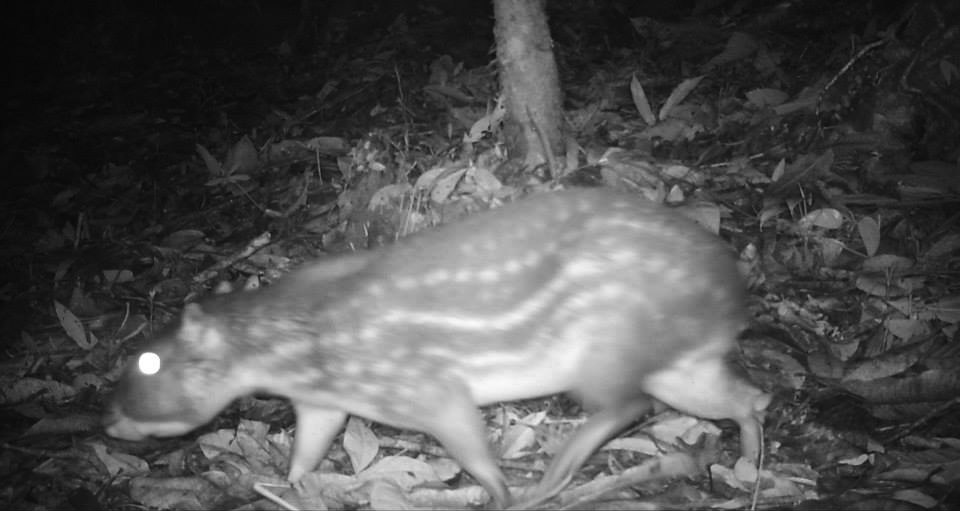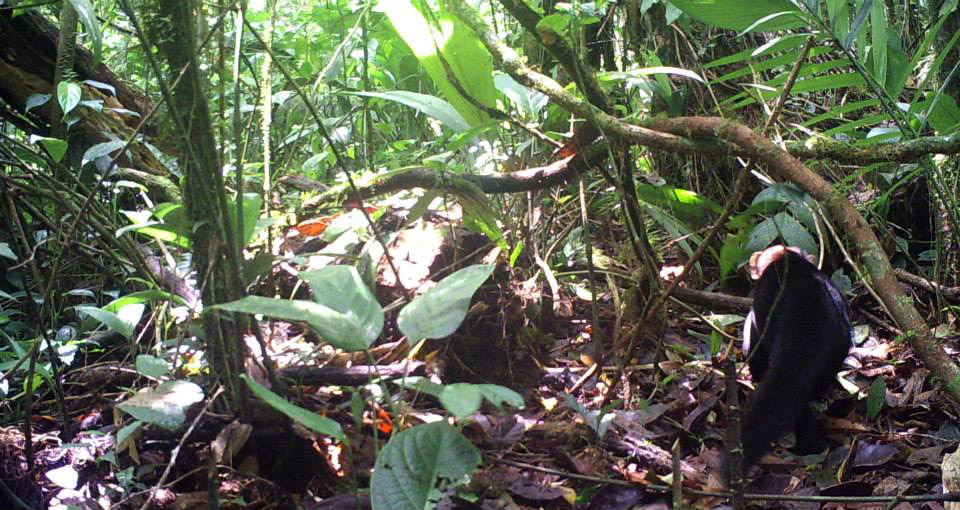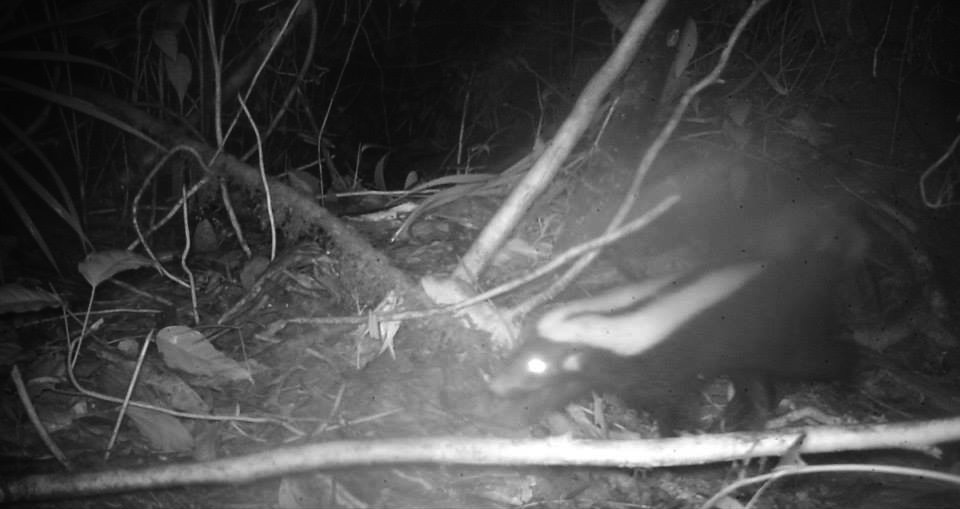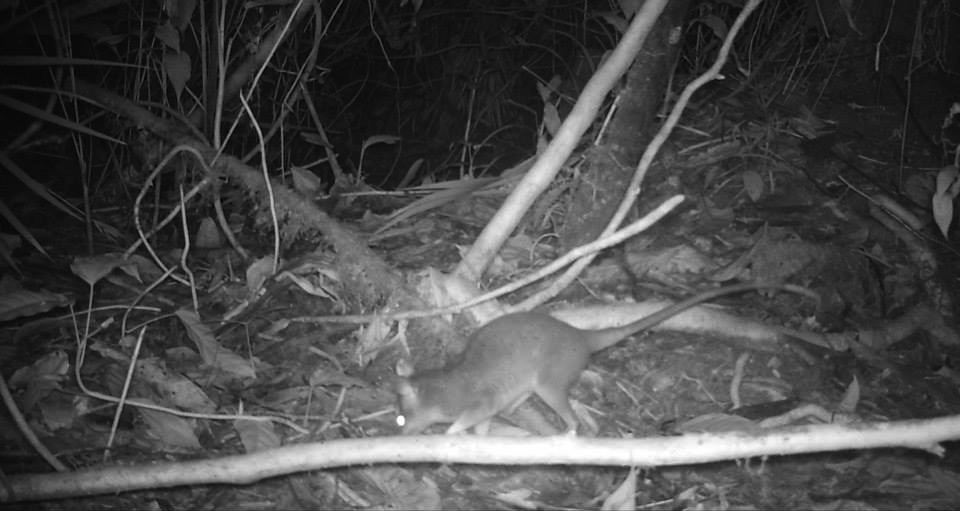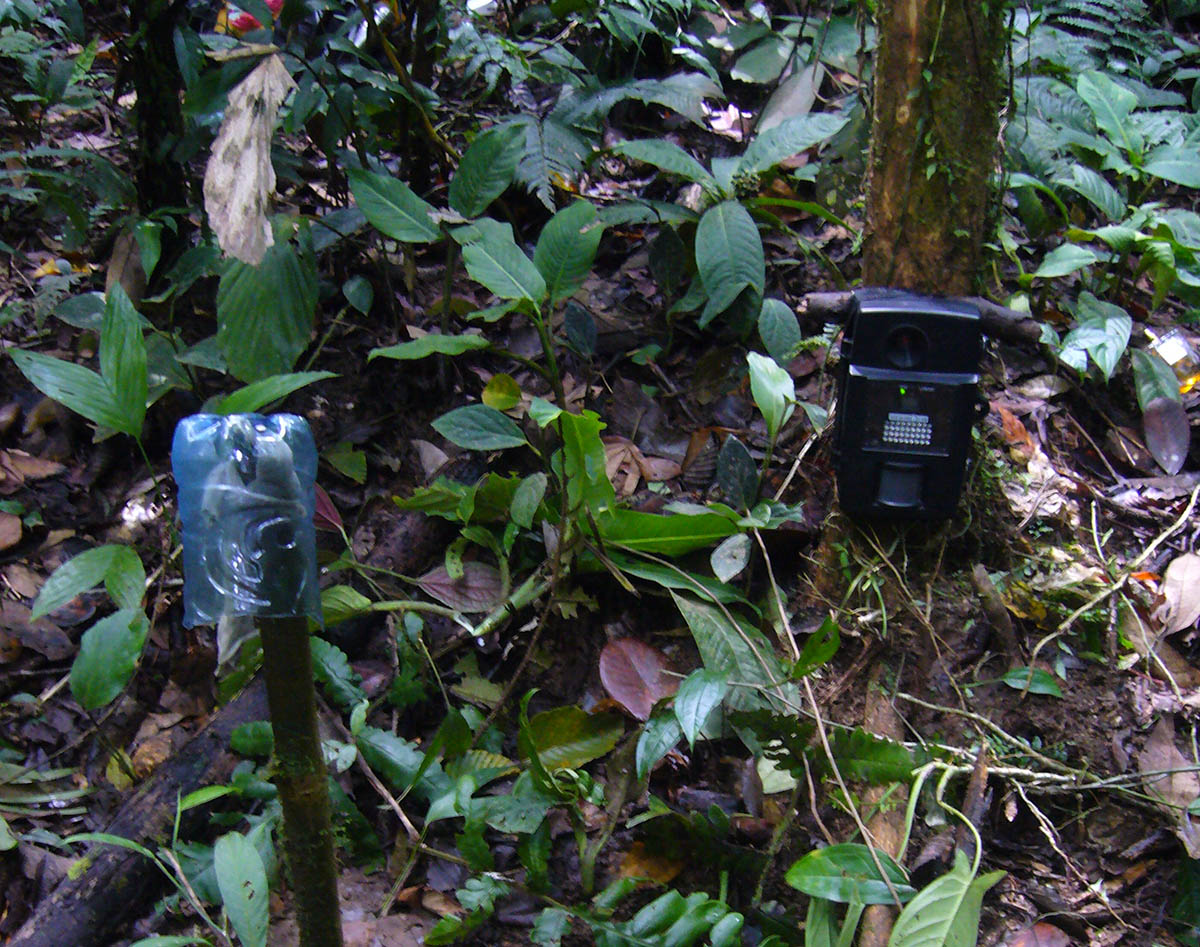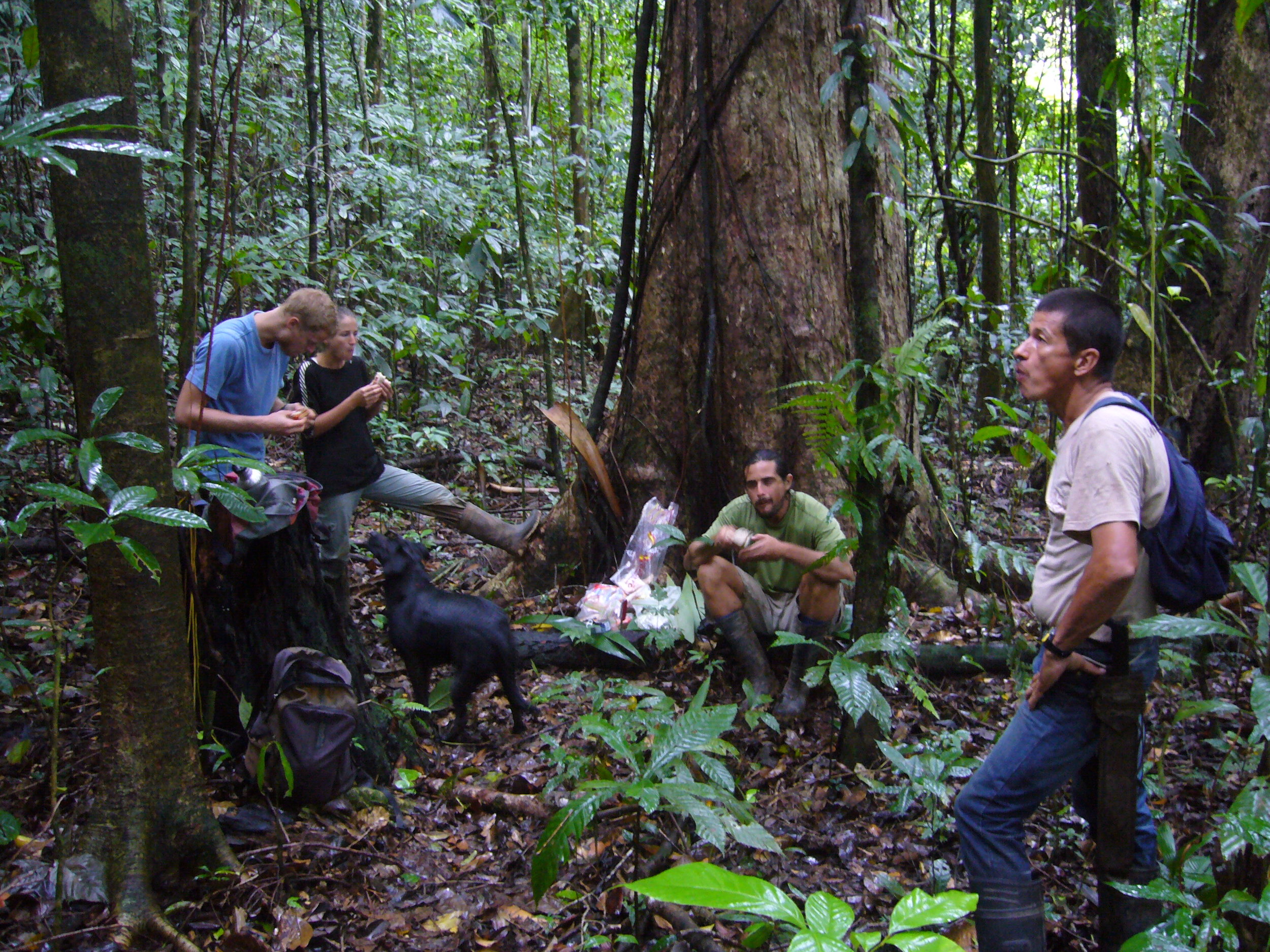Habitat Protection
Ave Sol is located in the Caribbean foothills of Costa Rica, an area that forms a geological connection between the Central Volcanic and the Talamanca mountain ranges. It's a corridor which facilitates gene flow between countless populations and species. If this area were to be clear cut and developed, the impact on biodiversity would be devastating.
Habitat fragmentation is, by far, the biggest threat for wildlife species worldwide. The first step to prevent species loss is protection of remaining natural ecosystems, then working to maintain and increase functional connectivity between them. This is the cornerstone of modern conservation efforts.
We are currently protecting over 120 acres, part of the country's largest stretch of continuous forest. If you do come and visit us here, take a little wander southeast, to the top of the ridge line. You could walk in that direction for weeks before finally emerging from the forest in Panama. This is a Biosphere Reserve protected by a partnership between the governments of the two countries and it's a totally amazing landscape! We say the words wild and wilderness a lot, but it really is true.
Our region is distinguished for its high level of endemism (unique to one geographic area). Not only that, but it is also the area richest in bird and mammal species in the whole country. Many of these are endangered or protected, but what is really important to biologists is that even more are yet to be documented scientifically. So gathering data is of critical importance before we can understand these complex ecosystems, and all of their precious inhabitants.
Scientific Research
Tropical rainforests are among the richest and most productive ecosystems in the world, and as we have seen, this region of Costa Rica in particular bears an incredible ecological importance. Only if we know and understand it can we manage it effectively, working with competing concerns to create innovative and mutually beneficial solutions.
Currently, we’re supporting our Scientific Director Gustavo Castro with his research. Our region has been identified as one of the key biological corridors to restore jaguar connectivity and gene flow. By the use of camera traps and other techniques, Gustavo is shedding light on how this occurs. His work covers factors such as species occurrence, vegetation type, canopy cover, tree density, human population density and road density, among others.
“Capture cameras” prompted by movement to photograph, have proved to be an essential tool in the study of elusive species such as the jaguar. The great advantage of these cameras is to be able to record very accurate data without the animal being captured. Cameras minimally disturb wildlife and replace the use of more invasive survey and monitoring techniques such as live trap and release. They operate continually and silently, provide very valuable information about species biology and behavior with very important management implications that can lead to better policy decisions, and are a cost effective monitoring tool. Capture cameras have been used to determine species occurrence and abundance, track and scat identification, forest and corridor dynamics, among many more applications in ecology and other fields.
Building on the success of this project, TAJA seeks to be a connected and capable facilitator for scientific research, bringing scientists together to gain an understanding of the fundamental processes that govern tropical ecosystems and corridor ecology through basic and applied research. We want to provide physical facilities (lodging, major instrumentation, study sites) and services (logistical support) that enable scientists to operate effectively in our region.
We also have a more specific interest in fostering socially impactful studies in addition to science purely for conservation. This is a very complex field requiring strong cooperation with many different groups from communities, business, government and NGO's. Fostering this level of cooperation is our ambitious long term goal. Fortunately, there are many in our area who share our vision.
Cultural heritage
The Indigenous people of this area are the Cabécar, who have retained much of their culture and traditions over thousands of years, living in harmony with the rainforest. The Cabécar lifestyle is divided between two worlds: the 'near space' which includes their homes, gardens and crop fields, and the 'far space' of the lush rainforest that surrounds them. They have a great knowledge of their environment, superior skills in hunting and fishing, as well as gathering all sorts of plants for food, medicine, crafts, house construction and other uses.
The Cabécar people live in relatively isolated communities and there are times when they need to visit the outside world to access goods and services that are not available in the forest. The distances they must travel also make trade, employment and communication with the outside world very difficult. Sharing their culture with our guests is a great way for them to meet these challenges and maintain their unique way of life at the same time. We offer guided walks up to the local village where guests can see the neatly constructed traditional huts, visit the local school where the children are always as curious as their visitors, learn about forest lore and techniques and let a few arrows fly with a traditionally made bow.
Sustainable Tourism
Our guests come to experience this place, for adventure and relaxation. For many, the overwhelming beauty of the river and forest sparks a natural curiosity about what we can all do to make this natural harmony more a part of our everyday lives and how we can protect these remaining wild places.
We give our adventurers an insight into the world of the fascinating creatures we share our home with, their behaviours, the beautifully complex relationships between them and just how interconnected all life here is with the wider world. For people seeking these experiences, Ave Sol River Sanctuary combines the exotic, the endangered, the primal, the untouched; a spectacular and powerful space for understanding our place in the world and how to coexist in harmony.
At Ave Sol, environmental education is one of the best tools we have to create a cultural shift towards environmental sustainability. We currently pursue this through our educational field trip program (available on the three day trip) where our guests become field biologists for the day. Scientific director, Gustavo Castro, has been sharing his expertise with all of us so your guide can take you behind the scenes of a scientific study. They explain the equipment used and the research taking place and how they contribute to the rich tapestry of knowledge. If you are lucky you may even encounter Gustavo in his natural rainforest habitat, patrolling his territory and contemplating some deep mysteries of science.
We acknowledge that our education program is a small step towards a challenging goal, and we aim to expand this program as our resources and networks grow. There are some important challenges our community faces on a local level, balancing economic growth with long term sustainability. Targeted education projects will play an important part in moving forward. We are very thankful to you, our guests, who empower us to pursue these programs with your patronage.
About Gustavo Castro, TAJA Initiative Cofounder & Scientific Director
“All different forms of life around me have always caught my attention. This has always been my greatest interest –learning about the behavior, habits, and requirements of tropical wildlife species, their ecology, and how to preserve them. This motivated me to become a biologist and specialize in the management of natural resources. This also led me to pursue a masters degree at the International Institute for Wildlife Conservation and Management.
Even though I have experience in different areas such as environmental education, ecotourism, and conservation biology, my biggest passion is to help conserve jaguars in the wild. My experiences in this field include several studies on its feeding ecology at various protected areas, a home range radio-telemetry study in Corcovado National Park, and my current corridor biology research at Ave Sol’s region.
The jaguar is the largest cat in the Neotropics and the third largest world-wide. It is an important species within its ecosystem occupying the position of top predator and is considered an umbrella species within a wide range of habitats. Culturally significant throughout the Americas, jaguars have long been revered as an important symbol of power and beauty, so that when considering conservation strategies, the strong image of the jaguar, coupled with its ecological importance, make it an ideal flagship species to enlist both local and global support for conservation. This is how the Talamanca Jaguar Initiative (TAJA) was born.
It is a sustainable development initiative that serves as a tool to address these issues in Ave Sol’s region. We want to lead conservation efforts towards filling gaps in forest protection, as well as gaps in information, education, and training while fostering new alternatives and opportunities for economic development in the Pacuare river basin with the jaguar as our guide and emblem. Our work aims at opening new perspectives in research looking for viable alternatives to address this region’s environmental, and socioeconomic needs in the short term, and to seize the opportunity to positively influence public economic and social development policies as well as legislative frameworks of models that privilege biodiversity conservation that will result in the permanence of the most charismatic of our tropical forest species.
I was born in Costa Rica, a country blessed with one of the largest densities of species in the world and with areas considered of highest priority for jaguar conservation. This is also a country that, along with many others, is experiencing a critical situation in terms of natural resource management. Problems such as deforestation, poaching, pollution, lack of environmental policies, education and enforcement, are causing a rapid loss of our country’s biodiversity; including an alarming decrease in jaguar populations and habitat. In addition, the lack of basic scientific research and species/ecosystem management techniques are serious constraints to address these problems.
Ave Sol River Sanctuary has given us the great opportunity to help mitigate all these issues in a region with such ecological importance. A region that is constantly been threatened by particular interests such as the damming of the Pacuare and heavy poaching. We’re confident that TAJA will make a strong positive impact in the region and will minimise all these threats.
I feel immensely grateful to be able to do this work. With all the help and support that we can get, we’re building a better future for ourselves and every creature that we love”.
-120 ACRES OF PROTECTED RAINFOREST CERTIFIED BY THE COSTA RICAN GOVERNMENT-
-HYDRO ELECTRICITY SYSTEM-
-THE AREA WE HAVE USED FOR THE LODGE HAD BEEN CLEARED FOR FARMING BY THE PREVIOUS OWNER, AND MOST OF THIS AREA IS CONTINUING TO RECOVER BACK TO ITS NATURAL STATE-
-WE RESPECT THE LEGALLY PROTECTED RIVER SIDE BOUNDARY BY BUILDING HIGH ON THE BANK-
-WE EMPLOY LOCALS AND CABECAR WORKERS FROM THE INDIGENOUS RESERVE-
-WE WERE PART OF THE COMMUNITY EFFORT TO STOP THE ILLEGAL CONSTRUCTION OF A DAM ON THE PACUARE RIVER IN 2005-
-Non organic waste from rafting trips is repurposed/recycled where possible or removed by raft-
-ORGANIC WASTE IS COMPOSTED-
-TROPICAL SEPTIC TANK SYSTEM-
-BIODEGEADABLE SOAP, shampoo and cleaning PRODUCTS, NO PESTICIDES USED IN THE GARDENS-
--
--
